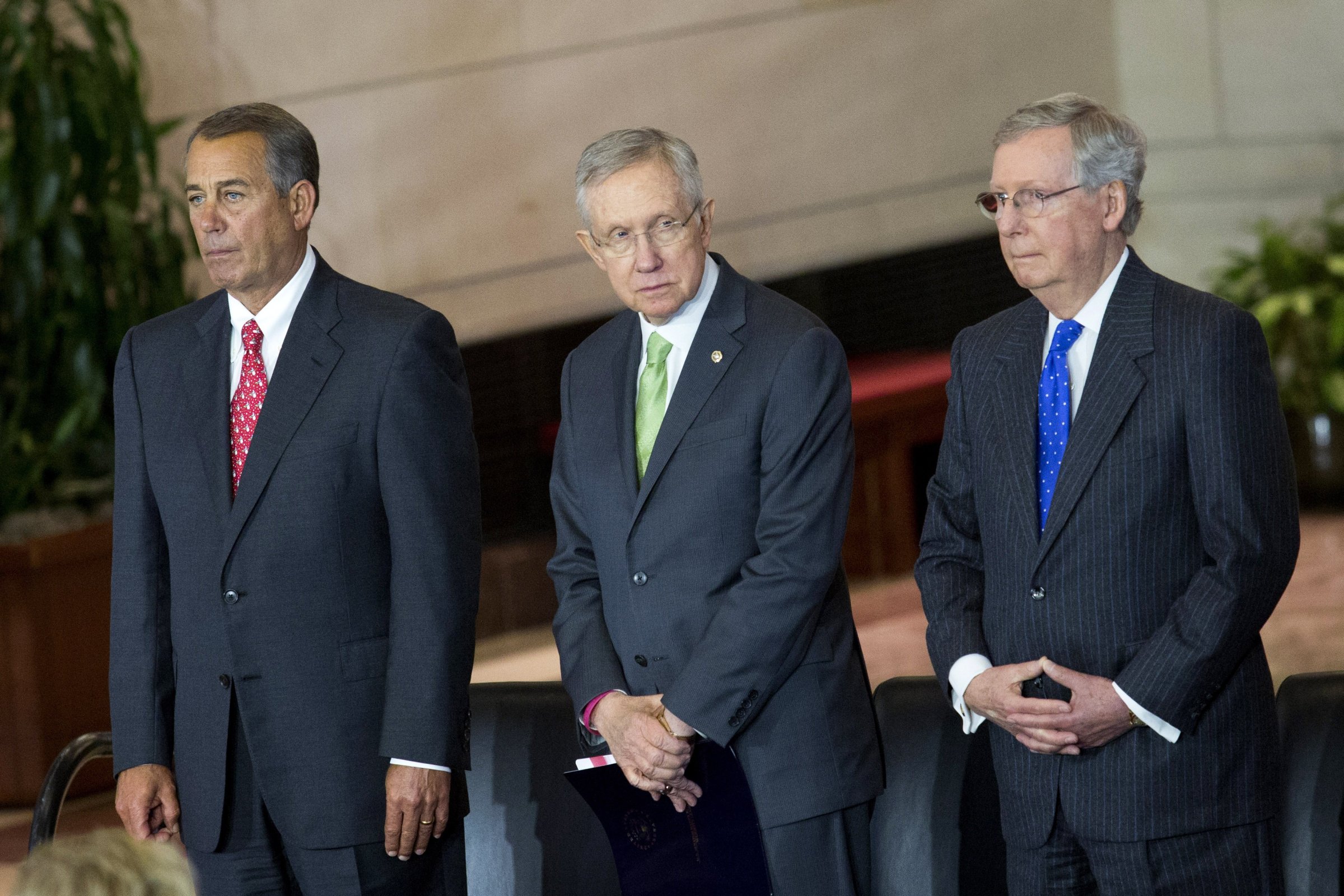
The Senate passed a $1.1 trillion government funding bill on Saturday night after days of fiery speeches on the chamber floors from both liberal firebrand Sen. Elizabeth Warren and Tea Party darling Sen. Ted Cruz. But despite some pushed back deadlines and last-minute drama, the plan provided by the parties’ leadership earlier in the week prevailed.
The top appropriators—Kentucky Republican Rep. Hal Rogers and Maryland Democrat Barbara Mikulski—and the party leaders—Senate Majority Leader Harry Reid and House Speaker John Boehner—can claim that they did what’s best for the country, averting a government shutdown in a bipartisan way. Indeed the bill was a compromise: Republicans continued to whack away on domestic discretionary funding, while Democrats won concessions on potential riders to the Environmental Protection Agency and secured billions in funding to combat Ebola and hundreds of millions more to fight ISIS, two key requests from the Administration.
“This bill puts the Affordable Care Act on secure financial footing for the first time in a long time,” said Reid in a statement Saturday night. “It gives our military the tools it needs to combat ISIS. It addresses the rape kit backlog, helping police and prosecutors prevent sexual assault. It increases funding for student loans. It ensures that President Obama’s executive action protecting families can move forward. And it provides funding to fight the Ebola epidemic.”
Neither conservatives nor liberals got what they wanted, but they got what they needed: a message to send back home. Those conservatives in deep red districts who oppose the President’s executive actions on immigration—deferring deportations for up to five million immigrants who came to the country illegally—now have a vote to draw a contrast between themselves and an unpopular president. As Senate Minority Leader Mitch McConnell left the Capitol Friday night, Texas Senator Ted Cruz stayed to throw up legislative hurdles, nabbing headlines after some had claimed his influence had been tamed by establishment figures like House Speaker John Boehner, who led the chamber to avert a government shutdown Thursday night on a close, but bipartisan vote. Even though Cruz’s strategy left his Republican colleagues furious—Reid got to push through more of Obama’s nominations with the extra time spent in the Capitol this weekend—Cruz once again raised his profile through an anti-Obama position. He has already made the choice that, as a first-term senator, his influence lies more on C-SPAN than in the party cloakroom.
“This is what voters demanded in November,” said Dan Holler, spokesman for the conservative Heritage Action, of Cruz’s weekend pushback. “The election was a referendum on Obama and his planned executive amnesty.”
Liberals, who have a tighter hold on the Democratic Party after the midterms thinned out their conservative counterparts, can now prove their bona fides sticking up for the little guy as they voted against provisions raising the amount donors can donate to the parties and another that facilitates Wall Street derivatives trading. Warren and House Democratic Leader Nancy Pelosi found that despite losing those battles, their core supporters were pleased simply with drawing attention to their issues.
“It’s not just about wins and losses, it’s about if they’re willing to fight for it, not just talk about it,” said Josh Goldstein, an AFL-CIO spokesman. “Senator Warren and Leader Pelosi—they’re proven leaders willing to fight for it. They stand with workers, that’s why we stand with them.”
In essence, the wings of both parties, which draw their strength from picking fights, found good ones.
“Democrats won,” said Holler. “It is curious that some Republicans are unwilling to pursue the mandate they were given. Cruz, [Alabama Republican Sen. Jeff] Sessions, [Utah Republican Senator Mike] Lee and others are though. Guess which side is more popular with the base of the party?”
“They’ve done damage to Dodd-Frank but they haven’t done irreversible damage,” said Sen. Sherrod Brown, a Warren ally and future top Democrat on the Banking Committee, referring to the 2010 landmark financial reform law. “And that’s Wall Street’s game and it’s our job to make sure they don’t win all the time and to protect the public…The battle continues.”
More Must-Reads from TIME
- Cybersecurity Experts Are Sounding the Alarm on DOGE
- Meet the 2025 Women of the Year
- The Harsh Truth About Disability Inclusion
- Why Do More Young Adults Have Cancer?
- Colman Domingo Leads With Radical Love
- How to Get Better at Doing Things Alone
- Michelle Zauner Stares Down the Darkness
Contact us at letters@time.com